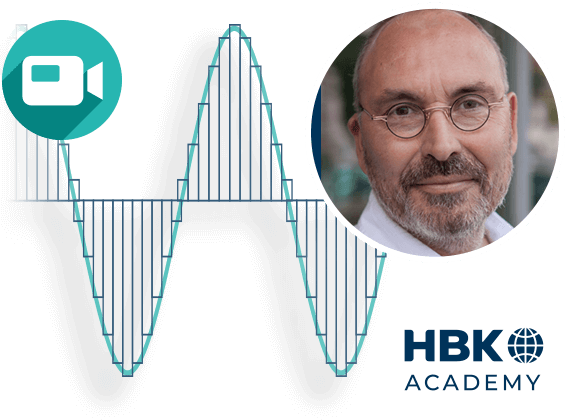What is the correct sample rate? What is the best filter?
Unfortunately, there is no universal answer to these questions. It depends on the measuring process, its dynamics, and the goal of the measurement. Even the ideal filter is purely theoretical. Real filters do not behave in an ideal way, but rather have a variety of characteristics. It is therefore important to be familiar with the characteristics of the most important filters in order to be able to choose the appropriate filter to achieve the goal of the measurement. This makes a fundamental understanding of the sample rate and filter essential.
In this 25-minute HBK Expert Talk, you will gain a fundamental understanding of how to select the most important measuring parameters. Our expert Thomas Hesse, who is a trainer at the HBK Academy, takes a very illustrative and memorable approach to get the heart of the theory and visually demonstrates the effects using a series of brief, practical experiments. 25 minutes well spent – we promise!
In this HBK Expert Talk episode, you will learn...
...about sample rates:
- When is the Shannon-Nyquist sampling theorem helpful and when can it be misleading?
- Aliasing – a good-looking measurement signal delivers a false sense of security, leading to erroneous interpretations.
- And how do I recognize undersampling?
...about filters:
- Cut-off frequency, passband, and stopband
- Strengths and weaknesses of Bessel and Butterworth filters
- Filter during the measurement or post-process?
Don't miss any future broadcast
Currently we produce new episodes of HBK Expert Talk regularly.
- You don't want to miss a show? Then follow us on social media or subscribe to our newsletter
- Do you have an idea for a topic that you would like us to cover in a future episode of the HBK Expert Talk? Please click here to share your idea with us

